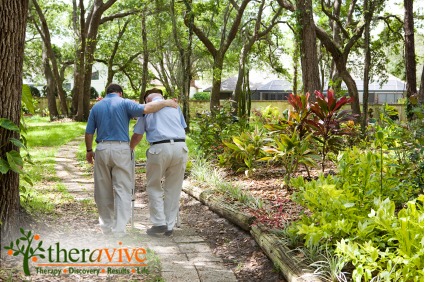A couple of months ago, our neighbor knocked on the door of apartment 24. She had never done so before, so she had no idea who would answer it.
That person happened to be me. She quietly sighed with relief – probably thankful that I was not a grumpy scrooge in a shabby robe that had just been awoken by a total stranger on a Saturday morning.
Then she sheepishly asked, “Do you happen to have a plunger that I can borrow? We just moved in, and our toilet is clogged.”
“Of course,” I replied. “Just wait here, and I’ll be right back.”
She smiled as she thanked me and quickly turned towards the hallway to walk back to her front door. About half an hour later, she came back, returned the plunger, and we said goodbye.
You might think that I was being polite. But I didn’t even bother to ask what her name was. In fact, I didn’t even know that she was new to the building. After I closed the apartment door, I closed the door on an opportunity to make a new acquaintance.
Perhaps it was my fault. And perhaps it was also characteristic of 21st-century urban society.
I can’t help but wonder what our brief encounter would have been like if we were of a different time period, of a different generation.
I recall the day my Grandma welcomed her new neighbors into their cul-de-sac. She spent the whole afternoon baking chocolate chip cookies. Then, we left her kitchen and walked across the street together. We rung her neighbors’ doorbell and greeted them with a basket of freshly baked cookies. Grandma’s warmhearted welcoming felt so natural and charming – not distant and reserved.
And now I wonder whether something has been lost somewhere between Grandma’s generation and mine. She carries with her a certain level of finesse, etiquette, and propriety that I wish I possessed.
Emily Post: The Face of American Etiquette in the 1920s
Emily Post, a famous American writer on etiquette, explained that etiquette is something that can be developed by all, regardless of one’s background or socio-economic status.[1] Etiquette, she wrote, involves both ethics and good manners. Her writings pay a great deal of attention to the importance of considering the well being of others.
Though in many ways Emily Post’s notions of etiquette might be a bit outdated – and even awkward – for modern day interactions, there is something to be learned from the social graces of the Roaring Twenties.
Young girls in finishing schools devoured her books on how to conduct oneself in a multitude of scenarios, and many of these lessons still apply to the 21st century.

A young lady would greet an elderly lady in the hallway with a “How do you do, Mrs. Jones?” A gentleman would offer his arm to an ill person if he saw that they were having trouble walking. Customers would speak politely to salespeople – it would be considered a sign of ill breeding and selfishness to do otherwise. Guests at a dinner party would not take more than their share of food at the table. Pedestrians would not litter the streets with their garbage. And we would greet our new neighbors with a friendly introduction, a greeting card, and a small gift.
A Forgotten Art: The Art of Conversation
In 2009, Catherine Blyth published a book, The Art of Conversation, which reiterates some of the consequences of our gradual loss of social graces.[2] In it she explains that we are losing our appreciation for conversation, face-to-face dialogues, and the delight of striking up a spontaneous conversation with a total stranger.
What strikes me most is that conversation is not merely a tool, a duty, or an obligation – it is a pleasure, something that adds value to our lives. Talking with someone else, even if just for a couple of minutes with a stranger, can be an enriching experience.
Is our society afraid of conversation? Is exchanging names with a new neighbor considered intrusive? Should it not be a sign of friendliness? Are we too busy to help that elderly lady cross the street or to hold the door for a stranger?
Bad Manners and Social Anxiety
Unfortunately, our lack of social graces can negatively affect the well being of others. When we are rude, short, or temperamental with others, we do not consider how our actions affect those around us.
Unfortunately, our gradual loss of social graces has the potential to harm others, sometimes encouraging or reinforcing the development of social anxiety.
Broadly speaking, social anxiety involves feelings of discomfort or worries that stem from social interactions.[3]
A good friend of mine struggles with social anxiety. Earlier this year, she recounted a disastrous family gathering where a relative was deliberately rude to her. She came home not only feeling hurt, but even more anxious about social interactions than before.
Bad manners and bad behavior are inexcusable and can have a lasting impact on society.
May we all do our part in improving our manners - not only as a sign of finesse, but also as an ethical consideration for the well-being of others. Though we no longer live in the 1920s, we can still strive to be a friendly, charming, and well-mannered people.
If you struggle with social anxiety or panic attacks, there are therapists who can help you. Mental health practitioners want you to feel valued and want you to develop meaningful relationships with others. Together with a therapist you can work through the causes of your anxiety and learn coping tools to help you function with less stress and more joy.